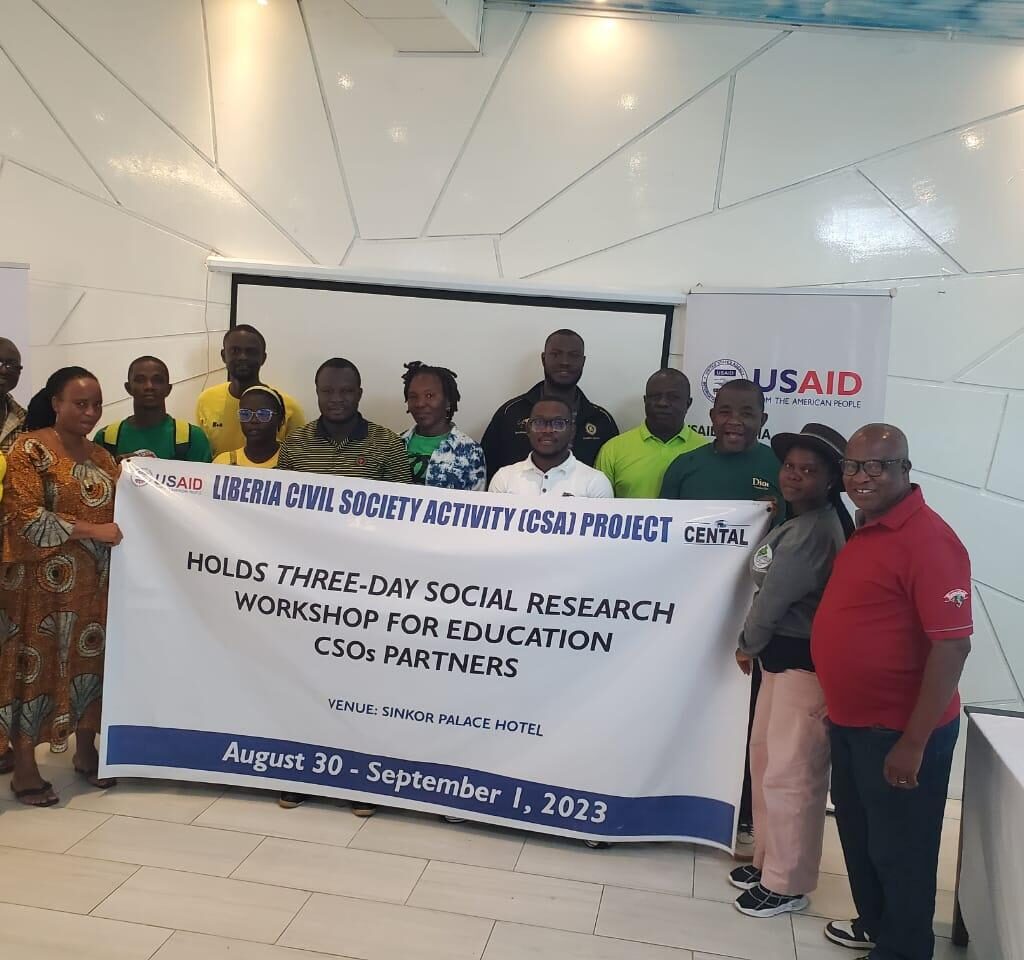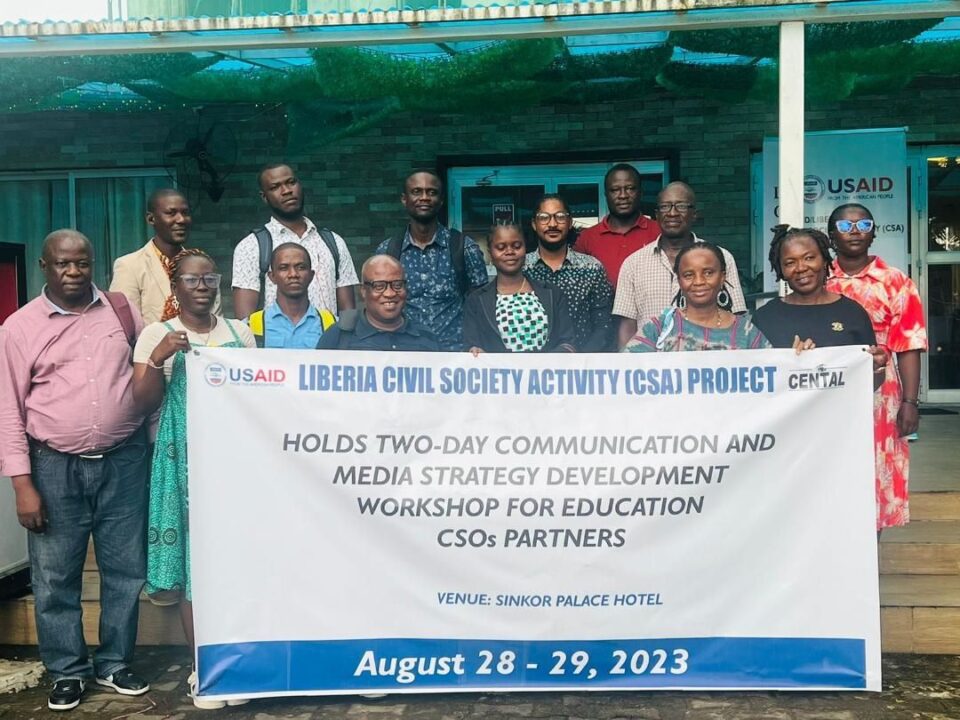Press Release
A coalition of nine civil society organizations advocating for policy reforms in the education sector under the USAID Liberia funded, Civil Society Activity (CSA), wants public school administrators to manage the registration fees they collect from parents during the school year.
Under the current structure, public schools send the registration fees they collect to the Ministry of Education (MOE), and the MOE later remits the money to schools to cover operational expenses.
But the CSA Education CSO Coalition said parents, teachers, students, and local education officials complained about that the funds do not arrive on time to enable schools to prepare for the opening of schools—paint, repair desks and chairs, fix leaky roofs and buy school supplies. The money sometimes arrives during the third period or at the end of the school year.
“The money needs to remain in the communities because the process of remitting money to MOE and MOE remitting to schools is too long,’’ said James Kollie, program director at the Institute for Policy Evaluation and Research (IPER), one of the CSOs working on the school registration fees project. “Sometimes there are a lot of bureaucratic bottlenecks.’’

As public-school students prepare to head to the classroom on Monday, Sept. 4, IPER and other coalition members are concerned that most schools will be inadequate for learning when students show up this week.
The CSA Education CSO Coalition comprising nine CSOs made the recommendation at the end of a five-day training where they learned tips on research and communication strategies to support advocacy campaigns for education sector reforms and advocate for peaceful elections.
CSA facilitated the training in collaboration with the Center for Transparency and Accountability in Liberia (CENTAL) at the Sinkor Palace in Congo Town, August 28-Sept. 1, 2023.
The coalition is targeting seventy-eight schools in Montserrado, Margibi, Grand Bassa, Bong and Lofa. The CSOs are working on three projects: Monitoring and Research/Investigation in Public School Registration Fees; Advocacy for PTA Guidelines for School Monitoring and Oversight; and Advocacy for the Establishment of Regional CSOs Legal Clinics/Assistance Centers.
Since its formation in July, the coalition is meeting with citizens, the private sector and education stakeholders to inform them about the projects and solicit support for implementation.
In the next three weeks, the coalition will visit schools, interview parents, local education officials, and MOE officials about the school registration process. They will request data on school enrollment, amount of money collected in registration fees in the last school year, amount disbursed to schools and the period for disbursement.
The monitoring of the school registration fees seeks to promote transparency and accountability. Under the project, CSOs will use the Freedom of Information Law to access information on the school registration process, funds collected and distributed to schools and how the money was spent.
McArthur Marshall, assistant program lead at Integrity Watch Liberia (IWL), one of the coalition members, said delay in disbursing the money to schools makes it difficult for schools to operate. The MOE and local school officials need to develop a system to account for the school registration fees.
“Some schools don’t get their money until the third marking period,’’ said Edwin Juah, of Youth Movement for Collective Action (U-MOVEMENT). “In our engagements with communities, we learned that schools do not get remittances on time.’’
Anderson Miamen, executive director of CENTAL, said the practice of schools collecting registration fees and sending to the MOE undermines decentralization policy as provided under the 2011 Education Reform Act. The coalition is working to simplify the law, so citizens can understand it, and advocate for its full implementation.
“If the MOE cannot help the already struggling public schools, it should not harm it by collecting monies paid by poor parents to help schools operate,’’ Miamen said. “The national government is not doing enough to fund public education.’’
The CSOs thanked USAID for building their capacity to support citizens in advocating for reforms in the education sector. They developed communication strategy, learned research methods, storytelling techniques, drafted jingles, developed talking points for talk shows, wrote press release and learned how to network with other CSOs, stakeholders and develop messages to promote peaceful elections.
Mercy Gwagee, project lead for the Institute for Research and Democratic Development (IREDD), said she learned how to develop messaging that will resonate with the project’s target audience.
“I liked that we got to develop communication strategy, draft jingles, learned research methods,’’ said Siemon L. Wee. “Our advocacy will be strong because of the training.’’
Other coalition members include Development Education Network (DEN_L), Institute for Democratic Action and Development (IDAD), Survivors AID International Liberia (SAIL) and Youth Coalition for Education in Liberia (YOCEL).

